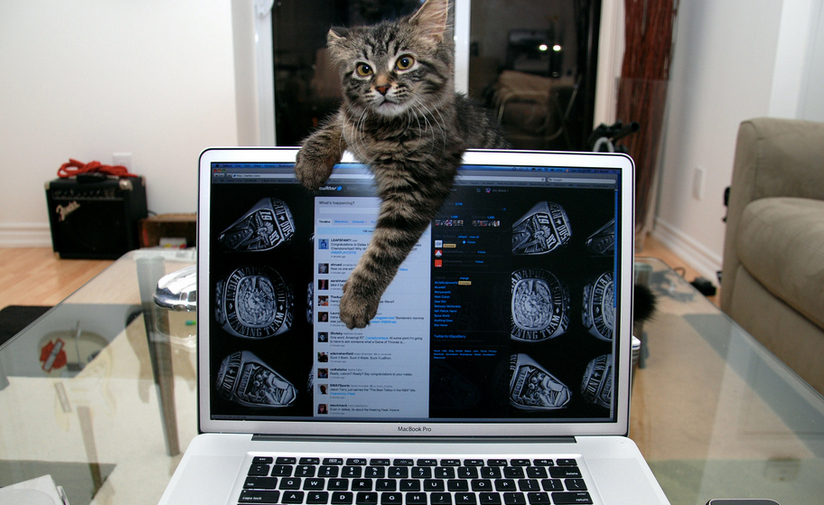Everything You Need To Know Before E-mailing The FCC About Net Neutrality

(Jim)
A lot of people have had a lot to say about the FCC’s proposed “fix” to the recently-vacated Open Internet Rule, better known as net neutrality. The official proposed rule will become available to the public on May 15, but the FCC has already established a way to accept public comments by e-mail. But the process is fraught with questions: is it worth your time? Will they publish your personal information? Does the FCC even take any e-mailed comments into consideration when they’re making their new rules?
Here’s everything you need to know before you send the FCC an e-mail about net neutrality.
How do public comments fit into the FCC’s rulemaking process?
The public comment period is a defined phase of the FCC’s legislative rulemaking procedure. The highlights of the detailed and relatively complicated procedure are:
- The FCC identifies the need for a new or amended rule, and drafts one.
- The Commission publishes a “Notice of Proposed Rulemaking” (NPRM) to tell the public what new rule they intend to enact.
- The public gets 30 days or more to make comments in response to the proposed rule.
- After the public comment period, the FCC takes all information into account and either enacts the rule, alters the proposed rule, or scraps the whole thing.
In the final rule, the public comments are addressed in at least some aggregate way, if not individually:
Any final rule must include an explanatory preamble and the rule text. The preamble includes a response to the significant, relevant issues raised in public comments and a statement providing the basis and the purpose (i.e., an explanation) of the rule. The Commission is not required to respond to each commenter; similar comments may be grouped together with an opening statement such as “several commenters suggested that” or the commenters may be referred to by name.
What’s different about the process this time?
The FCC has invited the public to send their comments to one specific e-mail address, openinternet@fcc.gov. And they’ve opened that inbox, kickstarting the public comment period, several weeks before officially publishing the NPRM.
Having the one inbox dedicated to receiving comments about net neutrality can make it easier for the FCC to gather and aggregate an enormous tide of public opinion… and they’re probably hoping to take some of the pressure off of individual commissioners’ mailboxes, as well.
Okay, so why is it different this time?
Overwhelming public interest, basically. The FCC maintains a page listing their most active current proceedings. The number of comments submitted to the net neutrality docket in the last 30 days is about equal to the next three most active dockets added together — and it keeps going up.
Who’s the “public” that gets to make public comments?
Everyone with an opinion. Both individuals and organizations can submit comments either in support of or against the proposed rule.
Where do e-mailed comments go?
Messages sent to the openinternet@fcc.gov e-mail address become part of the Open Internet Rule docket. The docket, numbered 14-28, is basically the FCC’s giant file drawer of every filing, comment, announcement and other procedural action related to this piece of rulemaking — it’s the official public record of the entire process. Anyone can search the database of public comments by docket number to see what’s being said about a proceeding.
Comments submitted by web form and by postal mail also end up in the same docket and searchable in the same database.
Just how public is the public record? Is personal information included?
The FCC publishes comments and filings online under the name of the person or organization who submitted it. Using the official comment form also requires an address, which is published along with the commenter’s name.
Of course, the FCC can’t publish information it doesn’t have. If an e-mail comes from “Optimus Prime,” then that’s the name they’ll have to run it under — but that doesn’t mean they have to take it seriously or care what it says.
But they haven’t published the proposed rule yet. Will I have to comment again after they do?
The answer is a resounding “maybe.” Comments submitted via e-mail now do become part of the official docket for consideration of the new Open Internet Rule. But although we probably know just about what it says, nobody outside of the FCC gets to read the actual text for another few weeks.
When the proposed rule becomes public on May 15, supporters and detractors alike will finally have specific text to argue for or against. That means everyone may have a whole lot more to say. As a representative from the FCC told Consumerist, “There is no need to comment twice — but once the NPRM is out, there may be specific proposals that people would want to comment on, and they are free to do so.”
Want more consumer news? Visit our parent organization, Consumer Reports, for the latest on scams, recalls, and other consumer issues.

